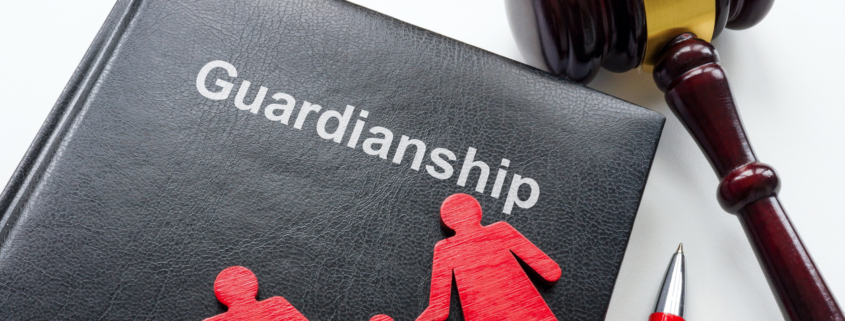Understanding the Legal Limits of Guardian Authority and When Judicial Permission Is Required
Orlando is home to families of all shapes, sizes, and financial backgrounds—and with our aging population and growing number of adults with disabilities, guardianship matters are becoming more common across Orange County. As a Guardianship Attorney in Orlando, I often meet with people who are either petitioning to become a guardian or trying to ensure a loved one is protected from financial harm. A recurring question is whether a guardian can make financial decisions without going back to court.
If you’re a guardian managing someone else’s money, or you’re worried about how a guardian is using funds on behalf of your family member, understanding the limits of authority is vital. Under Florida law, guardians are not free to handle all financial decisions unilaterally. Many actions require prior court approval—and failure to seek that approval can result in serious legal consequences.
I’m Beryl Thompson-McClary, and I’ve represented both sides of Florida guardianship disputes. I know how complicated these issues can become, especially when significant financial assets are involved. If you’re facing a guardianship question involving court approval for money decisions, I invite you to schedule a consultation by calling my office at 1-888-640-2999. I handle cases throughout Orange County, and I take the time to walk my clients through every step of this process.
Let’s talk about what the law says—and how I can help protect your rights and your family.
Guardianship and the Need for Court Oversight in Florida
In Florida, guardianship is regulated by Chapter 744 of the Florida Statutes. Guardianship can be limited to a person’s health and personal needs, or it can extend to their finances. When a guardian is granted control over a ward’s assets, they become a guardian of the property or a plenary guardian if they are responsible for both financial and personal decisions.
Under Fla. Stat. § 744.441, a guardian cannot make certain financial decisions on behalf of a ward without first seeking and receiving court approval. These restrictions are not optional. The court retains authority over the ward’s estate and expects guardians to obtain permission before engaging in specific transactions. This oversight is meant to protect the ward from exploitation, mismanagement, and loss of assets.
Common Financial Decisions That Require Court Approval
As a guardian, you’re expected to maintain the ward’s financial well-being—but there are clear boundaries. Some of the most common financial activities that require prior court approval include:
- Selling or mortgaging real estate owned by the ward
- Making gifts from the ward’s assets, even to family members
- Settling claims or lawsuits involving the ward’s property
- Borrowing money or lending the ward’s funds to others
- Executing estate planning documents such as trusts or wills
- Making charitable donations
- Investing in non-bank approved financial instruments
- Running or managing a business owned by the ward
Every one of these actions—no matter how well-intentioned—requires a written petition to the probate court and a judge’s approval.
What the Statute Actually Says
Let’s look at the key legal authority. Fla. Stat. § 744.441 sets forth a list of “special powers” a guardian may exercise—but only if the court grants permission. These include:
“The guardian of the property may, with prior court approval:
(1) Take possession of the ward’s real and personal property…
(2) Perform, compromise, or settle any contracts…
(12) Make any appropriate gifts…”
Each section of this statute outlines a specific category of financial activity that is subject to oversight. Florida law draws a clear distinction between routine, day-to-day financial decisions and extraordinary transactions that could significantly impact the ward’s estate.
Why the Court Requires Approval
Florida’s guardianship system exists to protect vulnerable individuals. The law presumes that a person who has been declared incapacitated may not fully understand or manage their finances, which means a trusted person is appointed to act in their best interest.
But guardianship is not meant to transfer complete and unchecked power. Court supervision ensures accountability and transparency. It prevents misuse and gives family members a legal pathway to challenge questionable decisions.
When a guardian takes financial actions without court approval, they risk being removed from their position, having to repay money, or even facing criminal charges if fraud or self-dealing is suspected.
Representing Guardians and Concerned Family Members
I work with people on both sides of these cases. Sometimes I represent guardians—people who are trying to do the right thing, but need help understanding their obligations. Other times I represent family members who are concerned that money is being misused or that court procedures are being ignored.
If you’re a guardian and unsure whether your planned financial actions require court approval, don’t guess. Let me help you petition the court properly and keep your guardianship in good standing.
If you’re a family member worried about what a guardian is doing with someone else’s money, Florida law gives you the right to object. You can file a petition under Fla. Stat. § 744.474 to ask the court to review the guardian’s conduct, require an accounting, or remove them if needed.
What Happens If a Guardian Fails to Seek Court Approval?
When a guardian moves forward with a financial transaction that required approval but failed to obtain it, the consequences can be severe. The court may:
- Order the guardian to reverse the transaction (if possible)
- Require full reimbursement to the ward’s estate
- Remove the guardian and appoint a successor
- Refer the matter to law enforcement if criminal conduct is suspected
As an Orlando Guardianship Attorney, I’ve helped guardians correct past mistakes and avoid more serious repercussions. But it’s always easier to do things correctly the first time—with the right legal guidance.
Court Hearings and Petitions: What to Expect
When court approval is needed, a formal petition must be filed. This document needs to explain:
- What you’re seeking approval for
- Why the action is in the ward’s best interest
- Any supporting documentation (such as appraisals or financial reports)
- Whether other interested parties object or consent
Once filed, the court will set a hearing, review the evidence, and decide whether to approve or deny the request. In high-value cases or those involving property disputes, other family members may appear to contest the action.
My job is to make sure that your request is thoroughly prepared and legally sound—and that your position is protected at every stage of the process.
Get Answers Before Taking Financial Action
Whether you’re a guardian trying to fulfill your duties or a concerned party trying to ensure a ward is being protected, you need to understand Florida’s court approval requirements. Mistakes can cost not only time and money—but someone’s trust and future.
Call me at 1-888-640-2999 to schedule a consultation and talk about your situation. I serve clients throughout Orange County and can guide you through what’s required and how to move forward legally.
Florida Guardianship Frequently Asked Questions
Can a guardian pay household bills without court approval?
Yes. Routine, day-to-day expenses such as mortgage payments, utilities, groceries, and medical care usually do not require special court approval, as long as they are reasonable and consistent with the ward’s best interest. These must still be documented and included in the guardian’s annual accounting.
Does a guardian need permission to sell a car owned by the ward?
Yes. Selling or disposing of personal property, including vehicles, requires court approval under Florida law. The guardian will need to file a petition explaining the purpose of the sale and how it will benefit the ward.
Can a guardian make gifts or donations from the ward’s funds?
No, not without court approval. Even small gifts or charitable donations require permission under Fla. Stat. § 744.441. The court must determine that the gift is appropriate, consistent with the ward’s past practices, and will not jeopardize the ward’s financial security.
What happens if a guardian invests the ward’s money in a high-risk asset without court approval?
This is a serious violation. Investments must be prudent and typically restricted to court-approved financial institutions or accounts. High-risk investments without court oversight could lead to guardian removal, repayment requirements, or more serious legal consequences.
Does every financial transaction need a separate petition?
Not necessarily. Some transactions can be grouped together in a single petition. For example, a guardian may seek permission to sell multiple assets as part of a long-term care plan. However, the court must approve each type of action specifically, even if part of a larger strategy.
What if the ward disagrees with the guardian’s proposed financial action?
Even if a person is under guardianship, they may still retain certain rights. The court may appoint an attorney for the ward and allow them to express objections. The judge will weigh the ward’s wishes alongside medical evidence and fiduciary responsibilities before making a ruling.
Can a family member block a guardian’s financial decision?
Yes, if the action requires court approval, any “interested person” may file a written objection or appear at the hearing to contest the decision. The court will hear both sides and decide whether the guardian’s action is in the ward’s best interest.
How can I find out if a guardian has court approval for a financial decision?
You can review the public court record or request copies of filings through the probate court. Guardians are also required to file annual reports that include financial summaries, and interested persons may request access to those reports.
Contact Orlando Guardianship Attorney Beryl Thompson-McClary at 1-888-640-2999 For A Consultation
Whether you’re a guardian unsure about your financial authority or a loved one seeking answers about how a ward’s money is being managed, it’s important to get clear, accurate legal guidance. Florida law requires court involvement for a wide range of financial decisions—and failing to follow those requirements can lead to serious consequences.
Let’s make sure your rights—and your loved one’s future—are fully protected.













